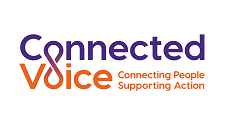Digital inclusion
Newcastle is one of the global ‘smart cities’ and one of the fastest growing tech clusters in the UK. The city also has a thriving voluntary sector and a proud history of supporting people and communities. Our own charity has been helping organisations to make a positive difference in the local community since 1929.
Many creative and innovative ideas are born out of charitable work, often influencing statutory services, but when it comes to digital technologies, our sector has been slow to adapt compared to the private sector. What’s more, many people in the communities we support are digitally excluded.
The COVID-19 pandemic forced a huge shift in how services operate, and for many organisations this fast-tracked the process of moving systems online. We heard countless inspiring stories about charities and community organisations that came up with creative ways of supporting people over lockdown. Some small pots of funding also brought more IT equipment to both charities and to people in the local community who may have previously found it difficult to access online support.
We still have a long way to go, however. As restrictions ease, many organisations now face the tricky task of balancing a blended offer / workstyle so they can have the greatest impact. Lockdown highlighted a lot of advantages in providing online services. For some people who may find it challenging to travel it opened up new possibilities and made life easier. For many people, it has simply been more convenient, and here at Connected Voice, we saw a greater attendance for our training when it was moved online. Reduced travel is better for our planet too.
At the same time, lots of people are still feeling isolated and miss the human connection of meeting face-to-face. Becoming more reliant on digital systems carries increased risk too – risk from cyber-attacks, downtime when we lose internet connection, and risk from being reliant on just one or two people in an organisation with the appropriate skills to maintain and fix systems. Organisations have also told us they are concerned that there are still a large number of people who either don’t have the correct / enough equipment to access digital services, or who don’t have access to the internet at all, and as more and more services move online, this is creating a serious problem.
Current challenges for organisations and the communities they support:
- IT equipment and systems – one of the biggest challenges is addressing the lack of appropriate IT equipment and setting up new systems in organisations such as digital accountancy, cloud-based storage and moving phones to an internet-based system.
- Basic IT skills – there are still a lot of people who need support understanding basic IT systems, and some people within voluntary and community organisations who need training in subjects like using Microsoft, connecting to printers, and understanding cloud-based networks.
- Accessibility – as more and more services move online we must ensure they are fully accessible with closed captions, alternative text and accessibility software that enables language translation, colour contrast and audio scripts. Many people are either unaware that their digital services aren’t accessible or aren’t sure how to make these changes.
- Cyber security – we have seen greater threats from cyber-attacks and scams, and scams becoming increasingly sophisticated and convincing. At Connected Voice, we offer an NCSC free training course in cyber security but few organisations sign up, either because they are unaware that they need the training or don’t see it as a priority. Some organisations have told us they are concerned that vulnerable people they support are more at risk of being scammed, particularly when they don’t have a full understanding about the dangers of sharing data online or warning signs to look out for.
- Language / terminology – some people, especially those who are digitally excluded, find the language and terminology that we use to describe digital services confusing. People have told us that they aren’t sure what ‘digital’ means or ‘cyber security’.
- Websites and social media – voluntary and community organisations have told us that they need more support and training around websites and social media. We’ve often heard stories of charities paying for a website that they are then unable to update themselves, are tied into expensive maintenance contracts that they can’t afford, or are unable to access at all once they lose contact with the original web developer. The role of managing social media often falls to one or two members of staff and we see a big range in skills and confidence.
Contact India Gerritsen for more information
What can we do?
Addressing these challenges is no small undertaking but there are a number of local organisations making great progress and leading the way with digital inclusion. We’ll be hearing from a few of these organisations at our upcoming VCSE Networking Event: Digital Inclusion, taking place on Wednesday 21 September 2022, 1pm – 3pm in central Newcastle.
Our Networking Events are primarily for voluntary and community organisations but we also welcome individuals and private sector organisations with an interest in learning more about what is happening in our local communities.
You can find out more and register to attend this event at https://www.eventbrite.co.uk/e/211982223537
Volunteering opportunities: In addition to attending the Networking Event, you may be interested in hearing about some of the ways you can support projects that are happening locally through volunteering. We’ve recently launched a new partnership volunteer project that covers the North of Tyne area. In Newcastle, we’re looking at how we can encourage more employee volunteering, making the most of people’s skills to tackle issues like digital inclusion. If you would like to find out more about this work, please email India Gerritsan, Volunteer Development Officer at india.gerritsan@connectedvoice.org.uk



